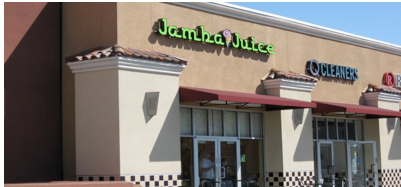CommentsBIZ WATCH--The attention-grabbing tiff between California Governor Jerry Brown and Florida Governor Rick Scott over the latter’s business-snatching safari to the Golden State highlighted a week of the state’s constant struggle to stay on top of business recruitment. The scorecard was mixed with news highlights of one business coming, one leaving and, watching with regret, one that got away.
California can improve the score if it keeps business burdens in mind. More on that later.
But first, the positive.
The Governor’s Office of Business and Economic Development (GO-Biz) announced that medical device company Cerebain Biotech was moving headquarters from Dallas, Texas to Costa Mesa. GO-Biz’s announcement crowed about California’s dominance in the biotech field with 2848 companies directly employing 281,000 people. California, home to so many innovative companies, is hosting the annual biotech convention in San Francisco in June.
On the other side of the balance sheet, Jumba Juice announced it was moving its national headquarters from Emeryville to Frisco, Texas outside of Dallas. The company noted that less expensive living and operating costs were major reasons behind the move.
Win one, lose one in the business tug-of-war with Texas.
As far as that rhetorical battle with Florida, pretty much a wash as well. Governor Brown pushed back at Florida. He said job creation success in California is far superior than that in Florida with California creating twice as many jobs as Florida over the past year.
True as far as it goes. But since Florida’s population is about half California’s, Florida actually had a slightly faster jobs growth rate. The fact checking site PolitiFact put the issue in context this way: “Brown’s claim is close on the raw numbers. But it leaves out the important context that California is a much larger state that needs to add more jobs to keep its millions more people employed.”
On the other hand, PolitiFact dismissed Gov. Scott’s argument that California would lose 700,000 jobs because of the new minimum wage increase law.
All the while this activity was going on, across the state line in Nevada, the enormous Tesla battery gigafactory is going up. Bloomberg News had an updated report on the giant factory.
A couple of years ago, there were a number of articles on this site supporting California’s attempt to capture the factory designed to build batteries for the Tesla car company, which is headquartered in California.
Ironically, in this period of prominent discussion of building walls, I began my article about the Golden States’ failure to win the factory this way: “Maybe we should build a fence around California not to keep people out but to keep businesses in now that the Tesla decided that the battery gigafactory would set up shop across the border in Nevada.”
The gigafactory represented the latest technology and possibly 6500 jobs, so it was a big loss to California and its quest for capturing businesses that produce innovative and cutting edge technology.
What to make of all this? That California is in a constant competition with other states over business placements and job creation. To stay competitive, state legislators and regulators have to consider businesses’ bottom line costs, which seem to grow simply because of state imposed mandates, regulations and taxes.
While legislators congratulate themselves for passing bills to improve the human condition, they should remember that successful businesses are the essential element for improving people’s lives. Legislators must consider ways to offset the growing costs they mandate on business so that businesses remain in California, are built in California and create more jobs.
(Joel Fox is the Editor of Fox & Hounds … where this analysis was first posted … and President of the Small Business Action Committee.)
